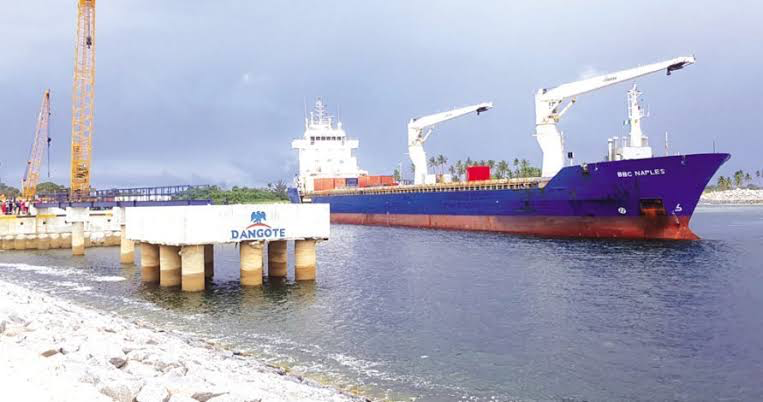389
In a significant development for Nigeria’s energy sector, the Dangote Refinery has commenced shipments of fuel items to the local market. This move is poised to have a substantial impact on the country’s fuel supply dynamics, potentially reducing reliance on imports and bolstering domestic energy security.
The Dangote Refinery, touted as Africa’s largest oil refinery, has long been anticipated to play a transformative role in Nigeria’s oil and gas industry. With its refining capacity of 650,000 barrels per day, the refinery has the potential to meet a significant portion of the country’s fuel demand once fully operational.
The commencement of fuel shipments marks a milestone in the refinery’s journey toward full-scale production. It signifies progress in overcoming various challenges, including construction delays and technical issues, that have hindered its operationalization in the past.
Nigeria, despite being a major oil producer, has struggled with fuel scarcity and dependence on imports due to insufficient domestic refining capacity. The Dangote Refinery aims to address this issue by producing a wide range of petroleum products, including gasoline, diesel, and aviation fuel, for both domestic consumption and export.
The refinery’s entry into the local market is expected to bring about positive outcomes on multiple fronts. It is anticipated to contribute to job creation, technology transfer, and economic growth, while also reducing the country’s expenditure on fuel imports and easing the burden on foreign exchange reserves.
Moreover, the Dangote Refinery’s operations align with Nigeria’s broader objectives of achieving self-sufficiency in fuel production and diversifying the economy away from oil dependency. By leveraging its abundant natural resources and investing in domestic refining capacity, Nigeria aims to create a more sustainable and resilient energy sector.
As the Dangote Refinery ramps up its production and distribution activities, stakeholders are optimistic about the long-term benefits it will bring to the Nigerian economy and energy landscape. With continued investments in infrastructure and regulatory reforms, Nigeria is poised to harness its energy resources for the benefit of its citizens and the region as a whole.
Source: Oil Review Africa
The Dangote Refinery, touted as Africa’s largest oil refinery, has long been anticipated to play a transformative role in Nigeria’s oil and gas industry. With its refining capacity of 650,000 barrels per day, the refinery has the potential to meet a significant portion of the country’s fuel demand once fully operational.
The commencement of fuel shipments marks a milestone in the refinery’s journey toward full-scale production. It signifies progress in overcoming various challenges, including construction delays and technical issues, that have hindered its operationalization in the past.
Nigeria, despite being a major oil producer, has struggled with fuel scarcity and dependence on imports due to insufficient domestic refining capacity. The Dangote Refinery aims to address this issue by producing a wide range of petroleum products, including gasoline, diesel, and aviation fuel, for both domestic consumption and export.
The refinery’s entry into the local market is expected to bring about positive outcomes on multiple fronts. It is anticipated to contribute to job creation, technology transfer, and economic growth, while also reducing the country’s expenditure on fuel imports and easing the burden on foreign exchange reserves.
Moreover, the Dangote Refinery’s operations align with Nigeria’s broader objectives of achieving self-sufficiency in fuel production and diversifying the economy away from oil dependency. By leveraging its abundant natural resources and investing in domestic refining capacity, Nigeria aims to create a more sustainable and resilient energy sector.
As the Dangote Refinery ramps up its production and distribution activities, stakeholders are optimistic about the long-term benefits it will bring to the Nigerian economy and energy landscape. With continued investments in infrastructure and regulatory reforms, Nigeria is poised to harness its energy resources for the benefit of its citizens and the region as a whole.
Source: Oil Review Africa



